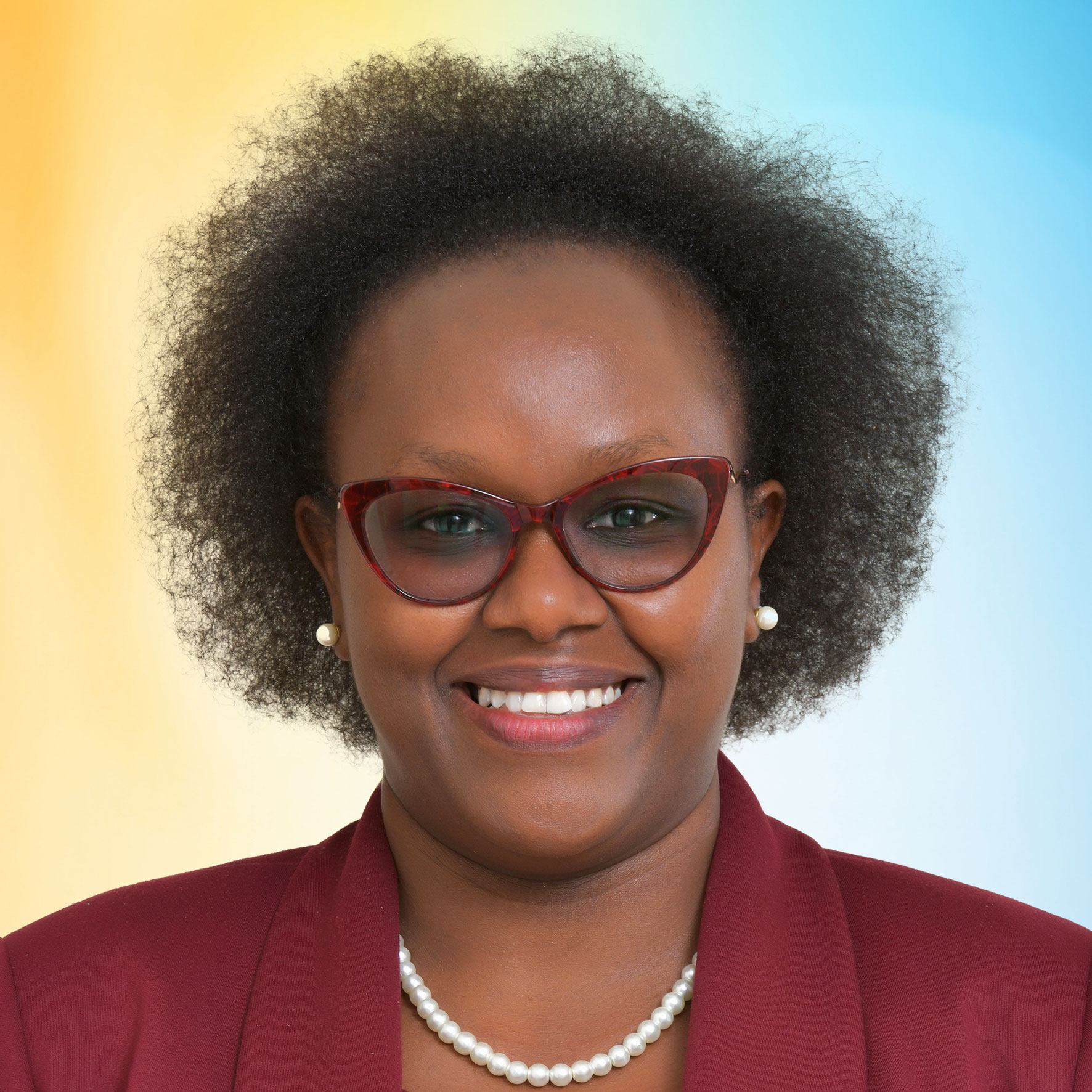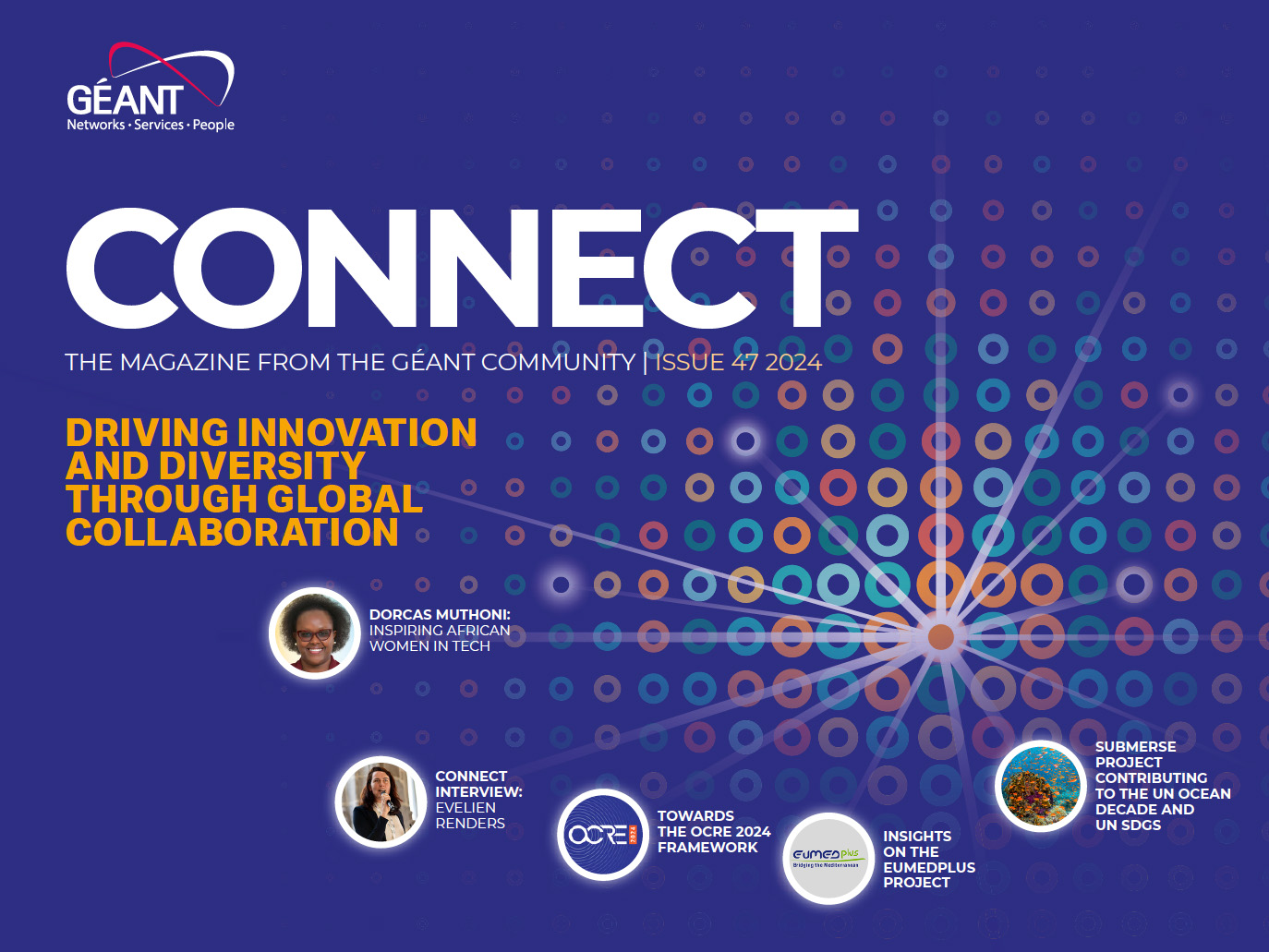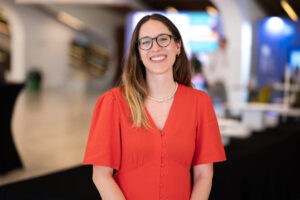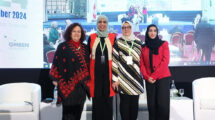
As defined by Face2Face Africa, Dorcas Muthoni is one of Kenya and East Africa’s leading innovators and the woman “behind some of the most widely used web and cloud applications in Africa”.
Kenyan entrepreneur and computer scientist Muthoni has been impacting lives on the continent with her leadership and technology advocacy. At the age of 24, she started her own software company, OPENWORLD, now a leading e-Government and Business Software Services firm in the region.
She was one of the very first women to join the Kenyan NREN, KENET, and then moved on to join the Board of the UbuntuNet Alliance, the regional network for East and Southern Africa. She is also the founder of AfChix, a mentorship and capacity building initiative for women in computing across Africa. Since 2004, AfChix organises many community-oriented activities such as the annual Computing Career Conferences and career workshops for women in technology, and has brought together many role models for young women interested in a career in computing. Among many other awards, Muthoni was also inducted to the Internet Hall of Fame in 2014, in the category of global connectors.
We spoke to her about her journey in computing and her experience working in the world of research and education.
Dorcas, you have been following your vocation since the early years – you founded OPENWORLD in your early twenties. How did you journey start?
My journey started at the University of Nairobi, where I graduated in Computer Science in 2002. Right after that, I joined a project that led to the creation of the Kenyan NREN, KENET. At the time, the project explored how to interconnect universities’ networks. It is then that I started to notice how very few women attended technical classes, but when I started hiring new people at KENET, it really hit me. I just couldn’t find any female applicants! I started talking to some of my friends and realised it was a common trend across universities and jobs in Computer Science. This is how I started to become interested in how to involve more women in our field. I started by sharing information to girls so that they could make informed decisions and be confident in their career choices.
Some years after joining KENET, you also became a member of the Board of the UbuntuNet Alliance. How have you seen the African research and education community develop and evolve throughout the years?
When I joined the Board of the UbuntuNet Alliance in 2022, I was pleased to see how many Eastern and Southern African countries had started their own NREN. I remember that my boss at the time, Victor Kyalo, spoke highly about how to collaborate with TENET, the South African NREN, and bring together local higher education institutions in our shared NREN communities to leverage the power of negotiation and get better rates. This was at the time when we were getting the first submarine cable to the Eastern African coast, and we were looking for ways to pursue the same objective. Today it is inspiring to see African NRENs supporting their community to grow and coming together regionally under the RRENs. It is a lot of hard work, and I hope that it will only grow in the future and that they continue to support higher education institutions to create the workforce of the future.
Twenty years ago, you co-founded AfChix. The organisation has been having a huge impact on the local community of women with impressive statistics and lots of initiatives. Can you tell us more about AfChix? How did it start and where is it now?
I was very happy when the first female student applied to one of our vacancies at KENET. She had attended a Kenyan university, yet her experience was very similar to mine – you could count the female students in her class on one hand! At that time, I was spending some time meeting Heads of Technology departments as well as IT managers of universities, and I remember only one or two were women.
It is because of these conversations that Irene Misoi and I created our first “computing career workshop for girls” series hosted at the Catholic University of East Africa. We would invite representatives from universities and together tell the girls more about career opportunities for computer scientists. I also reached out to other women I knew who would come and share their testimonies. Having these role models at the workshops was key to help us make it real.
I always say, when you are a child and you visit a doctor, you know what it means to be a doctor. But this does not apply to computer scientists, because they are not as present in our society as other jobs, and therefore it is more difficult to relate to them for young girls.
We also printed out some info packs for schools to increase awareness of existing programmes. We talked to teachers to make sure they would have an encouraging attitude towards careers in tech. Unfortunately, sometimes, parents talk their girls out of such careers, because they view them as too hard or too masculine, but the girls need to know that they can do it, if they want to. Even if you are interested in fashion, you’ll come across technology at some point. It’s the future and it’s all around us, so you don’t want to miss out or you’ll be isolated.
We’ve involved many women in AfChix’s journey, even outside of Kenya. Now we have 25 chapters all across the continent and lots of friends around the world who run similar initiatives. We organise hands-on training courses, storytelling through role models in different IT fields, and also career workshops in the community. This way, we have impacted thousands of women who now have the confidence to go to the next level and have become role models themselves. I am really proud of the cascade effect of our network.
With your involvement in the research and education community and commitment to empower women in technology, how do you see the role of national and regional RENs in Africa in shaping the next generation of female engineers, scientists, technologists and mathematicians?
The way I see the RENs help shape the next generation of women in STEM is by ensuring that universities have the right infrastructure to create a promising and adequate environment for technical courses to thrive, so that students can follow their training courses and acquire the knowledge they require to succeed in their career.
Once this is set, if we want to see more women joining, we must look back at how students get admitted in these programmes in the first place. For example, in Kenya, a student would need to pass some of what we call cluster subjects, such as maths and physics. We need to make sure that girls are not dropping out of these key subjects and losing, in practice, the chance of getting into technical university programmes.
In addition, what is of paramount importance for me is paternal support. Over the course of my career, my father never discouraged me to follow the path I had chosen for myself. Men need to be good champions of this change as well.
NRENs and RRENs should continue to build and modernise the infrastructure to support this change. And, at the same time, they should encourage the recruitment of more women in their own ranks. This is how it works: when you see something, you relate to it, it becomes real, and you stop imagining it. And let’s not forget encouraging as many male engineers as well to go out there and be the champions of this movement.
So, Dorcas, yours is a story of success. You are an entrepreneur and a computer scientist, member and fellow of several international and African boards, recipient of many awards and 2014 inductee to the Internet Hall of Fame. And you have been working a lot on activities that inspire young girls to join the world of tech. Did you have a role model when you first started and throughout your career?
I like to say that I learn from everybody, including children. I like to reset my mind by learning from the environment I am in. I remember Prof. Wangari Maathai working on environmental conservation. I grew up in Central Kenya surrounded by beautiful nature. At the time, she talked about climate change before people understood what it was. She had a background in environmental science, and even if I didn’t know what science it was, I saw how strong and committed she was to her mission. She had the ability to stand up for the right thing to protect the environment and I could relate to that. I never met her in real life, but I always admired her and her work, and that inspired me to be equally passionate to my own cause.
So, what do you have in store for AfChix?
We have listened to the testimonies of people that have been impacted by our work and we realised that we cannot stop. The need to mentor young people and to encourage young women to undertake IT careers will never stop. It is a field that is constantly changing and requiring lots of learning, and we want to be there to help.
At AfChix, we have put together a strategic plan to create a solid foundation to continue our mission to bring together role models and make sure that women can find peers to connect and learn from. We also want to be part of the conversation that explores the policies that can make this happen at both the public and private sectors. We also want to encourage women to exchange stories in their local community because experiences across different African countries might be different and might be dependent on local context and cultures.
I will take this opportunity to thank everybody who has supported our work, partners, sponsors, and all the women who have come on board and shared their stories and mentorship time on a volunteer basis. This was not done by me alone but by all the minds and hands that came together.
For more information about AfChix visit https://afchix.org/

Read or download the full magazine here








